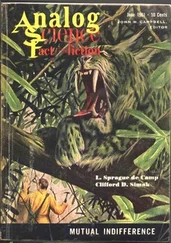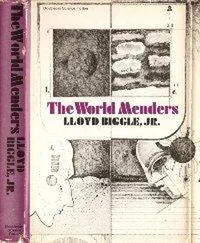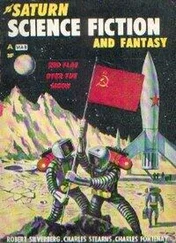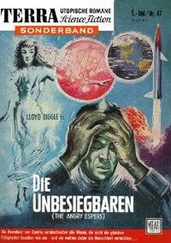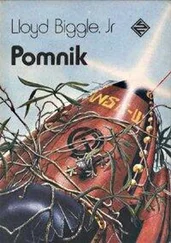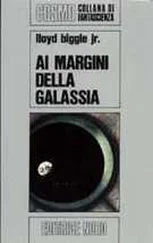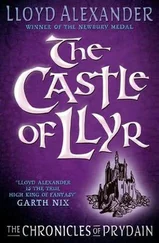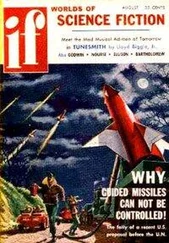Lloyd Biggle Jr. - The Chronocide Mission
Здесь есть возможность читать онлайн «Lloyd Biggle Jr. - The Chronocide Mission» весь текст электронной книги совершенно бесплатно (целиком полную версию без сокращений). В некоторых случаях можно слушать аудио, скачать через торрент в формате fb2 и присутствует краткое содержание. Год выпуска: 2002, ISBN: 2002, Издательство: Wildside Press, Жанр: Фантастика и фэнтези, на английском языке. Описание произведения, (предисловие) а так же отзывы посетителей доступны на портале библиотеки ЛибКат.
- Название:The Chronocide Mission
- Автор:
- Издательство:Wildside Press
- Жанр:
- Год:2002
- ISBN:978-1-58715-549-9
- Рейтинг книги:5 / 5. Голосов: 1
-
Избранное:Добавить в избранное
- Отзывы:
-
Ваша оценка:
- 100
- 1
- 2
- 3
- 4
- 5
The Chronocide Mission: краткое содержание, описание и аннотация
Предлагаем к чтению аннотацию, описание, краткое содержание или предисловие (зависит от того, что написал сам автор книги «The Chronocide Mission»). Если вы не нашли необходимую информацию о книге — напишите в комментариях, мы постараемся отыскать её.
The Chronocide Mission — читать онлайн бесплатно полную книгу (весь текст) целиком
Ниже представлен текст книги, разбитый по страницам. Система сохранения места последней прочитанной страницы, позволяет с удобством читать онлайн бесплатно книгу «The Chronocide Mission», без необходимости каждый раз заново искать на чём Вы остановились. Поставьте закладку, и сможете в любой момент перейти на страницу, на которой закончили чтение.
Интервал:
Закладка:
When Inskel called them, Arne had seen enough, and he knew would never have the slightest desire to look again. He said nothing to the others about what he had seen, and none of them asked him. As Inskel had already said, there was no way they could help, and worrying about it would interfere with their work.
Egarn and Arne were launched into the past almost without ceremony. There had been no wine since Roszt and Kaynor left; there was no longer a team to see them off. They clasped Garzot’s hands and then Inskel’s, and then, one after the other, they stepped under the large machine. Inskel put them down in a deserted section of Mount Hope Cemetery shortly after dark. They strolled past the Civil War graves and exited through the same hole in the fence that Roszt and Kaynor had used coming in the other direction. They went down the residence hall path, across the parking lots, and through the campus to Joseph Wilson Boulevard, which they followed along the river.
Egarn was unaccustomed to walking, and by the time the street curved eastward to intersect Mount Hope Avenue, he was exhausted—but this was not even a problem. They hailed a cab, and he told the driver to take them to the Sharber Motel. As he registered for himself and Arne, he carelessly displayed a well-filled wallet to the desk clerk and wondered whether it would be possible to have the same room he’d had several years before. Eying the wallet, the clerk thought it would be no problem at all if the room wasn’t occupied, and it wasn’t.
In this simple fashion they found themselves installed in the room Roszt and Kaynor had used for so long. They wistfully hoped the two men had left behind something that would be useful—records, notes, documents—but the chambermaid had cleaned thoroughly, and the safe under the bed was unlocked and empty.
“We will have to get along with what we already know,” Egarn said. “At least we have arrived safely, and we are ready to to work. Now if this scientist who was trying to study the len has a telephone listing—”
He did. The address was in Penfield, an affluent Rochester suburb, and the street number matched the one they had read on the mailbox. “We will go there now,” Egarn told Arne. “If he seems sympathetic, and if I like his looks—and if he will listen to me—I just might tell him the whole story. It will be dangerous, but he is the one person who may be able to understand what we are trying to do, and we will need help—especially now that the Lantiff are interfering.” He took two steps toward the door and collapsed.
Arne lifted him onto the bed. His old heart was racing wildly; his face was pale and moist with perspiration. He muttered, “I can’t do it. I waited too long.” He stared at Arne wildly. “And you can’t even speak English. You would be helpless.”
“Rest until you are feeling better,” Arne suggested. “Then you can make telephone talk with the man.”
“No. He would consider it a crank call. We can’t do anything unless we are taken seriously.”
“Then rest until you are able to write a message. Invite him to come here. I will take it to him.”
Egarn shook his head. “No. You wouldn’t be able to say a word. He would think you were a mental case and notify the authorities. Even with me there to explain things, this will sound preposterous. I will have to talk fast to keep us from being thrown out.”
“I can show him this,” Arne said. “Then he will take me seriously.”
He held up one of two small tubes he carried in his pocket. Egarn’s weapon.
“Yes,” Egarn agreed. “Yes—that is what you must do. He has already seen the end the girl broke off Kaynor’s. He is a scientist. If I offer tell him what it is, and where it came from, and how it works, he certainly will come. Yes. Let me rest for a moment, and then I will try to write.”
He wrote a letter on the motel’s stationery. Then he read it over and carefully rewrote it. A lifetime had passed since he composed anything in English, and he had difficulty thinking of words. On a separate sheet he wrote the scientist’s address in Penfield for Arne to show the cab driver. He also gave Arne a blank sheet of stationery with the motel’s name and address so Arne could show it to another cab driver if he had to return alone. If that happened, they would have to go into hiding until they found out whether the scientist had alerted the police.
After listening patiently to a long lecture about what he must and must not do, Arne put Egarn to bed, saw that he was resting comfortably, and slipped quietly from the room.
He was enormously worried about the old man. At that very moment, the six Lantiff might be leaving their retreat by the river bank and trekking toward the center of the city, and they would find Egarn exhausted and helpless—as they had found Roszt and Kaynor.
But Arne had no choice. The quest had become his.
He told the cab driver, “Penfield.”
“What was that?” the driver demanded.
Arne repeated the word twice while the driver, twisting his body so he could stare into the back seat, scrutinized him severely. The driver saw a decently dressed young man with long hair and a beard, apparently sober, probably not an addict. He talked like a foreigner, in which case he was harmless and likely to tip well. “Sure,” he said. “What address.”
Arne handed him the slip of paper.
The driver glanced at it, returned it, said cheerfully, “Gotcha,” and drove off.
The trip, through the night-time strangeness of a vast metropolitan area, seemed interminable to Arne and confusing beyond the scope of reason. He’d had no idea how fond the people of the past were of words and letters. Occasionally he had seen these displayed in scenes the large len showed them, but he hadn’t realized that the night sky would be ablaze with them— for what purpose he couldn’t imagine.
Eventually they put the city’s clutter behind them. The scientist lived in an area of widely-scattered, wealthy-looking homes. His house was set far back from the road in a wooded, park-like setting, and they followed a winding drive to the front door. Outside lights came on while Arne was getting out of the cab. He read the fare on the meter, deftly calculated a fifteen percent tip, and added another five per cent for unusual service. As first server of the Peerdom of Midlow, he’d had to be adroit in figuring percentages—that was how he apportioned food among the villages—and he had learned about numbers and money when Roszt and Kaynor were studying them. He paid the driver and watched the cab roll away before he mounted the steps.
The door opened as he reached the stoop. The man who faced him through the screen door was same tall, slender, bearded man he had watched doing tests on the len. Arne felt comfortable in his presence at once because of the beard. A civilization of clean-shaven men, along with so many women with long hair, gave him a sensation of inferiority everywhere he turned. To Arne, all of them were peeragers.
The man said—testily, as though he didn’t welcome being disturbed by late callers—“Yes?”
Arne said, “Marcus Brock?”
For a moment he thought the man was going to deny his own identity, but it was only Arne’s pronunciation that he was denying. “Marcus Brock,” he said, making it sound very different. “That’s me. What do you want?”
“Have let-ter,” Arne said and offered it.
The professor opened the screen door. “Come in.”
He escorted Arne into a large room that seemed packed to the bursting point with meaningless clutter, got him seated in a plushly cushioned chair, and sat down nearby to read the letter. When he finished, he studied Arne doubtfully for a moment, and then he read it again.
“You are Arne?” he asked finally.
Читать дальшеИнтервал:
Закладка:
Похожие книги на «The Chronocide Mission»
Представляем Вашему вниманию похожие книги на «The Chronocide Mission» списком для выбора. Мы отобрали схожую по названию и смыслу литературу в надежде предоставить читателям больше вариантов отыскать новые, интересные, ещё непрочитанные произведения.
Обсуждение, отзывы о книге «The Chronocide Mission» и просто собственные мнения читателей. Оставьте ваши комментарии, напишите, что Вы думаете о произведении, его смысле или главных героях. Укажите что конкретно понравилось, а что нет, и почему Вы так считаете.


